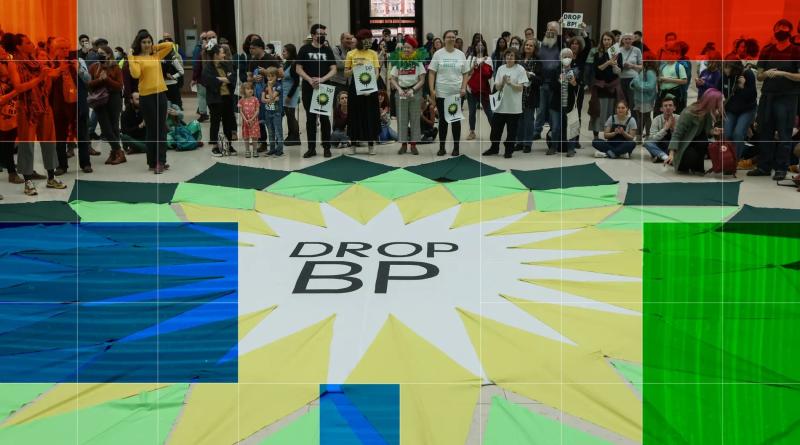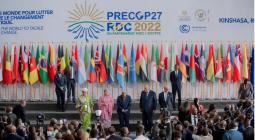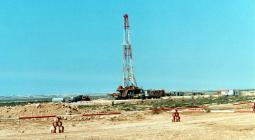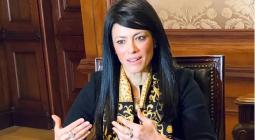Cop27: crucial climate talks more fragile than ever after year of turmoil

With war in Ukraine and a cost of living crisis, the global picture is much changed since last year’s conference
For oil and gas companies this has been the best year ever. The world’s five biggest alone have made a combined profit of $170bn so far in 2022, a figure likely to be just the tip of the iceberg – most producers are nationally owned, and not required to come clean on their profits. “We are getting more cash than we know what to do with,” as one senior executive from BP admitted, before the companies zipped up their communications in the face of public fury.
Party time for fossil fuels is not what climate experts had been hoping for. If the world is to get to grips with the climate emergency, oil and gas must be urgently phased out. Instead, they are becoming one of the most attractive investments in the global market.
“This is definitely not a good thing,” says Fatih Birol, executive director of the International Energy Agency, and one of the world’s foremost energy economists. “The companies are mainly paying the money back to their shareholders, which is helpful for the shareholders, but it’s not going to help with the world’s climate goals.”
While the oil and gas execs have been splurging their bonuses, more than 20 million people in Pakistan have needed humanitarian aid, after heavier floods than any in recorded history devastated the country in August. In Africa, the worst drought in 40 years has left 146 million people facing extreme hunger. China has suffered the worst heatwave in history, Europe has seen record temperatures – more than 40C in the UK – and the US megadrought was judged the worst in 1,200 years.
For António Guterres, secretary-general of the UN, the link between climate disaster and fossil fuel boom is explicit. “We seem trapped in a world where fossil fuel producers and financiers have humanity by the throat,” he told world leaders this summer. “Nothing could be more clear or present than the danger of fossil fuel expansion. Even in the short term, fossil fuels don’t make political or economic sense.”
The bumper profits of the oil and gas companies underscore what a disastrous year this has been for the global climate. Vladimir Putin’s illegal and brutal invasion of Ukraine, as well as being a tragedy for Ukrainian people and a nuclear threat to global peace and democracy, sent already rising oil and gas prices into the stratosphere. It has also led to sharp rises in food prices, fuelling a cost of living crisis around the world. Economies already battered by the Covid-19 pandemic are tumbling into recession, and to keep the wheels turning governments have turned in panic to fossil fuels, expanding gas, oil and even coal production.
“The sins of our current situation have come from Moscow,” Birol told the Guardian. “The Ukraine war has cost the lives of thousands of innocent people, and it has also hurt people in developing countries and around the world, in Europe and the US. People in developing countries have been worst affected.”
It was all so different just a year ago. When the Cop26 summit ended last November, the world seemed to have turned a corner. Delegates from around the world celebrated in Glasgow, as countries agreed to limit global temperatures to 1.5C above pre-industrial levels – a major advance on the 2015 Paris agreement, which targeted a 2C limit while promising to “pursue efforts” to stay within the lower range.
Science conducted since 2015 has shown us definitively that 1.5C is much safer, as beyond that threshold changes will take hold which will rapidly become catastrophic and irreversible. In agreeing a 1.5C target, “we got something historic over the line”, said Alok Sharma, the UK minister who was president of Cop26.
Scientists have also warned that this decade is crucial: to stay within 1.5C, greenhouse gas emissions must be roughly halved by 2030. On this issue too, Cop26 made major progress. Under the Paris agreement, all countries must come up with short-term plans on emissions, known as nationally determined contributions (NDCs), most pegged to 2030, and update them every five years. But the Glasgow climate pact recognised that this update schedule – known as the ratchet – was too long, so asked countries to renew their NDCs this year.
As well as these achievements, the commitments on greenhouse gases made by countries at Glasgow took us further than ever in reducing emissions in line with the 1.5C goal. Governments responsible for more than three-quarters of global emissions signed up to long-term targets to reach net zero by about mid-century, as well as their NDCs. If all those long and short-term pledges made at Cop26 were fulfilled, the International Energy Agency calculated, temperatures would rise by 1.8C.
That is a big if, as many countries have promised long-term goals with few concrete measures to meet them, and it is still a breach of the 1.5C threshold. But it represents a major improvement on the Paris emissions pledges, which would have led to heating of more than 3.5C.
“The political momentum changed a lot [at Glasgow],” said Birol. “It’s not enough, but it’s a very positive trend.”
All of that progress is now in jeopardy. Governments are preparing to meet again, for the Cop27 UN climate summit that begins in Egypt on 6 November, but in a much-altered mood since their last outing. Geopolitical tensions have riven the consensus reached at Cop26, with governments at odds over the war in Ukraine and grappling with the cost of living crisis. At the halfway-point of UN negotiations in Bonn in June, some delegates staged a walkout in protest when Russia took the floor, and the Egyptian hosts are braced for similar scenes next week.
Sameh Shoukry, the Egyptian foreign minister who will chair Cop27, told the Guardian: “We recognise the geopolitical conditions that have evolved over this year. But we are encouraging everyone to concentrate on the task at hand, climate change. No matter what happens to all the other challenges and tensions, we know for certain we will all suffer [from the climate crisis] in the end. We will all be impacted.”
Shoukry’s strategy is to try to persuade countries to leave their other issues at the door. “We have to try to isolate these geopolitical tensions, disagreements, and focus on how do we move forward together. Because we can’t move forward independently – we won’t be successful.”
To make things worse, the world’s two biggest emitters, China and the US, are now at loggerheads. Nancy Pelosi, the US House speaker and third-highest-ranking member of the ruling Democratic party, riled China this summer by visiting Taiwan, the island over which China claims sovereignty. Diplomatic relations between the two plunged to a new low, and even though climate negotiations are supposed to exist in a separate “bubble”, they have also been affected.
John Kerry, the US special presidential envoy for climate, told the Guardian: “China is 30% of all emissions. We need to get China.”
One of the high points of Glasgow was a surprise bilateral pact between the US and China to cooperate on tackling the climate crisis. Shoukry has offered to mediate, but this year, it will be an achievement if Kerry and Xie Zhenhua, his Chinese counterpart, can meet in the same room.
Egypt has called Cop27 the “Cop of implementation” – a recognition that the promises made at Glasgow have not yet been turned into reality. Governments made big pledges, but few have come up with the concrete policies and measures that will be needed to realise them.
Sharma, the UK president of Cop26, warned on leaving Glasgow last year that the agreement reached there was “fragile” and that the 1.5C temperature goal was “on life support … its pulse is weak”. This year was meant to be devoted to shoring it up, strengthening commitments, fleshing out targets, but that has not happened.
According to the promises made in Glasgow, all countries should have returned this year with improvements to their NDCs. Only 24 have done so, and most of these – Australia and India the exceptions – are little changed from last year. The UN last week estimated that, going by countries’ current short-term NDC targets alone, and leaving out the longer-term and more nebulous net zero goals, temperatures would rise by 2.5C.
Sharma, who was thrown out of cabinet and demoted by the new UK prime minister, Rishi Sunak, despite being widely praised around the world, told the Guardian more progress could be made in Egypt. “There have been many headwinds this year, the primary headwind being Putin’s illegal and brutal war in Ukraine,” he said. “But despite this, we have seen some progress. We’ve had revised NDCs come forward [and] if you add up the sum total, you’re talking about a 1.4Gt reduction in emissions by 2030. That’s an appreciable amount.”
The UK itself, which might have been expected to play a leading role in trying to hold the Glasgow pact together, has shown questionable judgment. Under Boris Johnson, prime minister during Cop26, one of the responses to the Ukraine war was to hasten new licences for North Sea oil and gas exploration. After he was deposed in July, his successors ditched green policies even faster, first Liz Truss who embraced fracking while her business secretary vowed to “squeeze every last drop” of oil and gas from the North Sea. Then Sunak, who reimposed the fracking ban but – to widespread disgust among other countries – at first snubbed Cop27, saying he was too busy to attend, until stung into it by Johnson’s plans to turn up.
Sunak and Truss were united on one issue: they forbade King Charles to go, even though the Egyptian hosts had hoped for him as a star turn. The king is respected around the world for drawing attention to the climate crisis, and made widely welcomed interventions at Paris and Cop26. He is also head of state for many Commonwealth countries on the frontline of the climate crisis.
For the rest of the world, Sunak’s vacillation, the UK’s rekindled enthusiasm for fossil fuels, and the cooping up of the King make a poor showing by the country that was supposed to lead the negotiations this year, before handing the baton to Egypt on Sunday.
All of this leaves the prospects for Cop27 looking dim. Shoukry told the Guardian the 1.5C goal was “more fragile” than it had ever been, and that forging consensus at Sharm el-Sheikh would be harder than it was in Paris or Glasgow.
But there are reasons to be hopeful. Just as bumper oil profits have revealed the true costs of fossil fuel dependency, the Ukraine war has spelled out clearly the national security perils for democratic governments of putting their economies at the mercy of oil and gas-rich autocracies.
The price of renewable energy has fallen sharply over the past decade, and now soaring fossil fuel prices have made it even cheaper by comparison. Europe has been spurred to a faster rollout of wind and solar power generation, as well as increases in energy efficiency. The International Energy Agency last month published an analysis showing renewable energy investment set to rise by 50% by the end of the decade, and predicting a global emissions peak in 2025.
Sharma says this is good news. “The IEA analysis is that this year will see an increase of less than 1% in emissions, compared to last year, and that’s despite the fact that we’ve got more fossil fuels being burnt right now,” he said. “The reason for that is the big increase in renewables capacity around the world, and also the fact that we have a big growth in electric vehicles globally. If you look at the additions of power capacity around the world, about 90% of all the additional capacity was from renewables, and it’s expected to be the same over the next two years.”
Gareth Redmond-King, international lead at the Energy and Climate Intelligence Unit, said: “Vladimir Putin has been a drag on international climate efforts for years, but ironically by cutting off gas supplies and sending prices spiralling, he’s caused the EU and others to run harder and faster towards net zero than is reflected in their current emissions pledges.”
Businesses as well as governments are taking note. Andrew Forrest, the Australian mining magnate, is converting his business to renewable energy because “the sun doesn’t send me a bill at the end of the month”.
Yet for developing countries, a clean energy future is a distant dream. In sub-Saharan Africa, Birol notes, “every second person lacks access to electricity”. Lacking it has huge impacts, forcing families to cook using wood or smoky paraffin, preventing children from doing homework, blocking access to modern medical care and disrupting commerce.
For the leaders of some African countries, giving people access to energy and expanding their economies means exploiting their fossil fuel resources. Countries including Nigeria, Senegal, Mozambique and the Democratic Republic of Congo have known oil and gas resources and are hoping to share in the current bonanza.
Mo Ibrahim, the Sudanese-British businessman, one of the richest people from Africa, who made billions from bringing mobile phones to Africans without landlines, says the answer is simple: let Africa use, and export, its gas reserves. “We need a balanced and a fair policy for everybody. Gas can be useful to our transition. [Developed countries who say otherwise] are hypocrites,” he told the Guardian.
Ibrahim’s charitable foundation published a report in September that concluded that for Africans to treble their energy use from gas alone would add less than 1% to global carbon dioxide emissions. “It wouldn’t even move the needle,” he said.
But African climate campaigners disagree. They fear African gas exploration would operate as a form of “neo-colonialism”, with the profits extracted by multinationals or siphoned off to domestic elites. Ordinary Africans would see little of the boom, but would be tied into high fossil fuel prices and infrastructure for decades, and bear the worst of the climate catastrophe.
Lorraine Chiponda, of Don’t Gas Africa and the Africa Climate Movement of Movements, said: “The proliferation of gas on the African continent to remedy a short-term energy crisis in Europe is a reckless move that will further result in plunder of the African continent. [Instead we need to] regenerate and build restorative people’s economies that are not colonial, extractive, patriarchal and corporate driven. The deception of the masses by peddling false solutions such as considering gas as a transition fuel, or sanitising gas as clean energy, must stop.”
The only way to solve this conundrum is through developed countries helping African nations, and other vulnerable people, to gain access to clean energy, and help them with the impacts of the climate crisis. That means stepping up on what are by far the biggest issues for poor countries at this Cop: climate finance, and the related question of loss and damage.
Since 2009, developing countries have been promised that by 2020 they would be receiving at least $100bn a year to help them cut greenhouse gas emissions and cope with the impacts of extreme weather.
That target has been missed, and will be until next year. Furthermore, most of the climate finance that has been disbursed has gone to middle-income countries, and for projects that could already be profitable, such as wind and solar farms. The poorest countries, particularly in Africa, have lost out, and the little they have received has come mainly in the form of repayable loans that drive them further into debt.
Poor countries have grown yet more desperate, facing food price hikes and drowning in debt. They feel Cop27, as an African Cop, is their chance. Whereas Cop26 focused on the 1.5C target, they now want to address the impacts of the climate crisis that are already happening, and the future impacts that are now inevitable.
Adaptation accounts for only about a fifth of climate finance. At Glasgow, developed countries promised a doubling of adaptation finance, and poor countries will want to see serious progress on meeting this goal in Egypt. A senior UN official likened the current amounts to “putting a Band-Aid on a broken leg”. Much more is needed, the official said: “We need to throw the global financial kitchen sink at these challenges. We need to mobilise the finance now – that is what is needed in the developing world.”
The failure by developed countries to come forward with assistance for adaptation has blighted the climate talks. Shoukry warned of a “lack of trust” between the developed and developing world – in this context, code for a lack of money.
“African countries, as well as most developing nations, have expectations that the priority issues that they deem fundamental should be achieved, [to create] trust between developed and developing countries,” he said. “Cop27 is the venue where that trust can be enhanced and consolidated.”
The extreme weather of the past year has shown that the changing climate will bring impacts that countries cannot adapt to. The floods in Pakistan left at least a tenth of the country under water, and afflicted about a third of the population. About two million people were left homeless, and the damage is conservatively estimated at about $40bn. The problems – economic and social – created by this disaster will take years to fix, and some communities may never recover.
Catastrophes like this will only become more common in the coming years, and poor countries – with less developed infrastructure, and tending to occupy areas of the world more prone to climatic extremes – will bear the brunt, despite having done least to cause the climate crisis. For these reasons, their demands go further than finance for emissions reduction projects, or adaptation measures such as seawalls or early warning systems. They want help for loss and damage.
Shauna Aminath, the environment minister for the Maldives, which has suffered severe damage from tropical storms, said they resulted in people displaced, homes and livelihoods ruined, agriculture destroyed, infrastructure swept away, and these problems carried on for years after the donors had departed in the immediate aftermath. When climate disaster strikes, it affects not just physical infrastructure but services such as health and education, and tears apart the social fabric of afflicted communities, in ways hard to repair.
“These are the social issues that are left behind,” she said. “Any discussion of loss and damage must recognise these socioeconomic impacts.”
Loss and damage is defined as the impacts of the climate crisis so great that they cannot be adapted to. In the early days of these discussions, a decade ago, loss and damage was framed as a demand for reparations or compensation from the rich to the poor. That framing was problematic, as rich countries could not sign legal agreements that could leave them open to unlimited future liabilities, and such language was explicitly rejected at Paris.
Since then, the framing has changed in a way that both sides can more readily accept: loss and damage means helping countries on the frontline of climate catastrophe with rescue and rehabilitation that goes beyond the immediate impacts of extreme weather, and helps countries on a long-term basis to rebuild and protect their citizens.
With so much at stake, the sums required for loss and damage are likely to dwarf the $100bn a year promised for climate finance. There is also obvious overlap with other aid spending, on services such as health and education that are generally separate from climate funds.
Developing countries have put forward ideas, including a global carbon tax, taxes on frequent flyers, and windfall taxes on oil and gas producers. None of these is likely to be agreed by world leaders in their visit to Sharm el-Sheikh, however. Shoukry admits a full resolution is still distant: “The important thing is that we develop a roadmap on how deal with it subsequently, and provide a continuum within a specific timeframe that allows us to reach a conclusion.”
Climate Cops, in their 30 years, have weathered geopolitical storms before, and the 45,000 participants expected this year will be prepared for a torrid two weeks of late nights, friction and frustration.
Christiana Figueres, the former UN climate chief who masterminded the Paris agreement, believes Cop27 can prove successful if countries seek honestly to address the glaring inequalities of the climate crisis that have become so apparent this year, and remember that this is an African Cop.
“The unprecedented high prices of energy have provided historically high windfall profits for the fossil fuel industry, while turning abject poverty into unfathomable misery among the most vulnerable,” she said. “Cop27 is a moment to show solidarity with those worst affected by climate change, and be led by a courageous vision for a future of dignity and prosperity, for all African citizens.”





